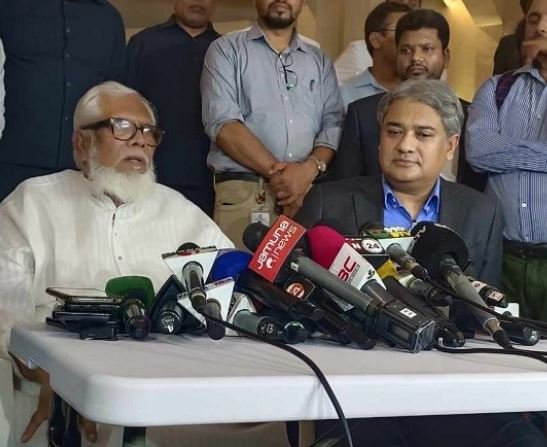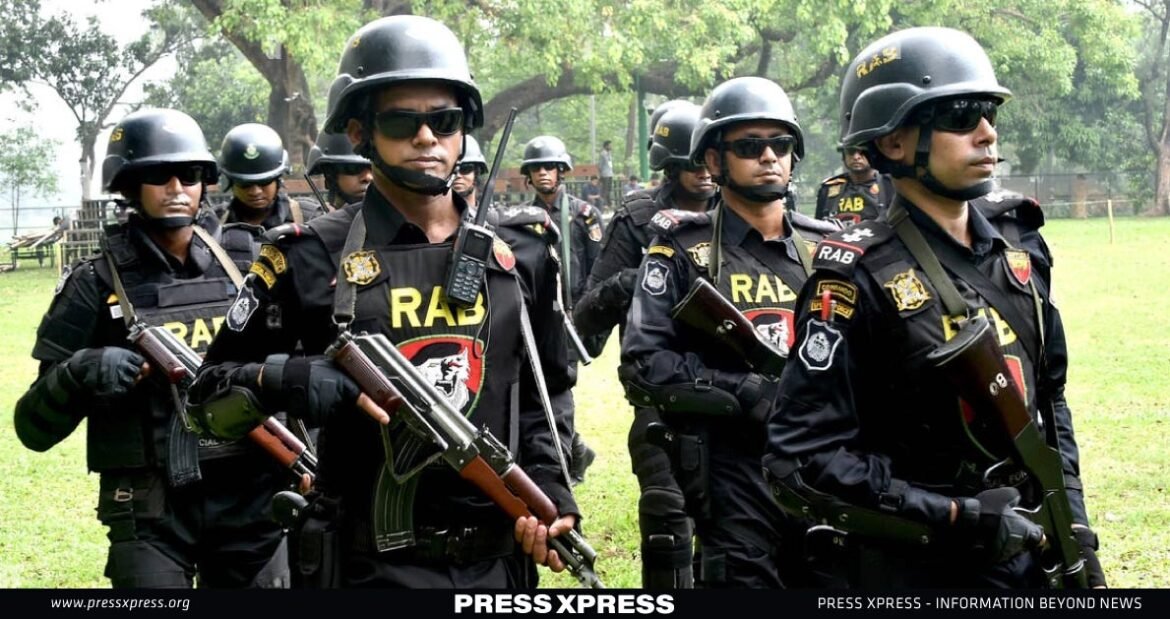The United States is contemplating the removal of sanctions imposed on Bangladesh’s Rapid Action Battalion (RAB), an elite paramilitary force that has been accused of alleged human rights violations, including extrajudicial killings and enforced disappearances. The reconsideration comes during the recent visit to Bangladesh by US Assistant Secretary of State for South and Central Asian Affairs, Donald Lu, where the possibility of lifting sanctions was discussed.
You Can Also Read: RECENT RAB OPERATION IN PERSPECTIVE: FEARSOME NEXUS BETWEEN RELIGIOUS & HILL EXTREMISTS
Donald Lu apparently responded positively (according to statements made by Salman F Rahman, Prime Minister’s Investment Affairs Advisor); however, he also stated that the final decision was not up to him. This potential shift in policy indicative of a broader effort to strengthen trust and enhance bilateral cooperation between the United States and Bangladesh.
Current Status of Rapid Action Battalion
Established in 2004, RAB is composed of approximately 15,000 members drawn from various military and police units. The primary responsibilities of RAB include combating terrorism and tackling serious crimes. Despite its successes in these areas, RAB has faced intense criticism for its alleged involvement in human rights abuses.
In 2021, the United States imposed sanctions on RAB in response to reports of extrajudicial killings and enforced disappearances. Since the imposition of these sanctions, the number of reported abuses has decreased significantly, although concerns about the organization’s conduct persist.
RAB’s leadership maintains that they have made improvements to their practices, resulting in a reduction in such incidents. While the US has acknowledged this progress, it continues to call for accountability and further reforms before considering the lifting of sanctions.

US Now in Favor of Lifting Sanctions
The United States has expressed support for the removal of sanctions imposed on Bangladesh’s Rapid Action Battalion (RAB), following substantial improvements in the organization’s operations and human rights practices. US officials, such as Assistant Secretary Donald Lu, have recognized these advancements, emphasizing RAB’s decreased involvement in extrajudicial killings and enforced disappearances since the sanctions were put in place in December 2021.
Both the State Department and the White House are in favor of lifting the sanctions, although the ultimate decision rests with the Department of Justice, which functions independently. This development demonstrates the United States’ willingness to re-engage with Bangladesh in matters of security and law enforcement cooperation.
Bangladesh has actively sought the removal of these sanctions, with officials engaging in ongoing discussions with their US counterparts. They have emphasized RAB’s reforms and the government’s dedication to upholding human rights.
Decision Indicates Warming of Relations Between US and Bangladesh
The United States’ decision to lift sanctions on the Rapid Action Battalion (RAB) is a clear indication of its renewed interest in strengthening bilateral ties with Bangladesh. This move is part of a broader US strategy aimed at deepening cooperation across various sectors, including security, trade, and human rights.
“He (Donald Lu) stated that the State Department and the White House support our move for withdrawal of the sanction and have already informed the Justice Department that RAB has made progress and the sanction should be lifted. He expressed hope that it will be done, but there is a process that needs to be followed,”
– Salman F Rahman, Prime Minister’s Investment Affairs Advisor.

On 14th May, Donald Lu arrived in Dhaka on a two-day visit to strengthen bilateral cooperation and demonstrate US support. It was during this visit that the decision to lift sanctions on RAB was discussed.
A letter by the US President to Prime Minister Sheikh Hasina emphasized and reinstated the US intention to cooperate in various fields, including security, economic development, and other issues. The letter came after the 12th National election of Bangladesh; the letter was followed by a high US diplomatic visit.
High-level engagements such as Donald Lu’s visit; and President Joe Biden’s letter to Prime Minister Sheikh Hasina, emphasize the strategic importance of Bangladesh as well as the warming of relations. Biden’s letter praised Bangladesh’s progress and expressed a desire for long-term cooperation, particularly in the areas of technology and infrastructure development.
This warming of relations signifies a mutual commitment to addressing regional and global challenges together. The United States’ focus on democracy and human rights in Bangladesh is part of a larger effort to ensure stability and development in South Asia, while also countering the influence of other regional powers.
The improved relations and the prospect of lifting sanctions signify a renewed sense of trust and collaboration between the two nations. It highlights the importance of accountability and reform in fostering international partnerships. As the United States and Bangladesh work towards this objective, both countries anticipate a stronger and more cooperative future.
Overall, these developments indicate a stronger, more complex partnership that is poised to benefit both nations through enhanced cooperation and mutual support across various domains.
Conclusion
The lifting of sanctions on the Rapid Action Battalion (RAB) and the United States’ renewed commitment to bilateral cooperation represent a significant step forward in US-Bangladesh relations, reflecting the US’s strategic interest in strengthening ties across defense, trade, and humanitarian sectors.
Recent dialogues have highlighted shared goals in regional security and economic growth, with efforts aimed at bolstering stability and counterterrorism measures. The lifting of sanctions could open the door for future US-Bangladesh cooperation on security issues and assistance.


